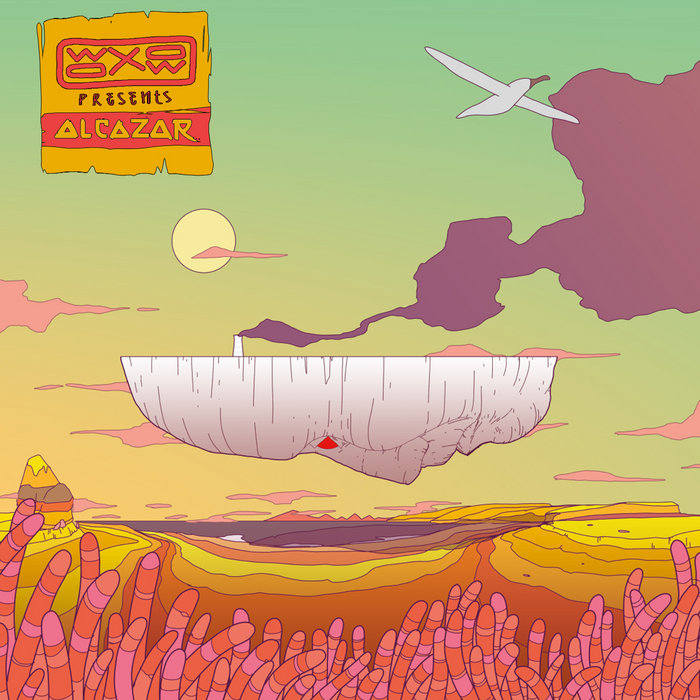
Alcazar (with Chaos 7"inches single) – Little Beat More
this blog is GROOVY – check out great Soul, Funk, Jazz, Hip Hop, Bass, Breaks , Reggae, House n many more TUNES
Hey there, music lovers! Grab your shades and get ready to groove through the vibrant and rebellious world of protest music. This genre has been shaking things up for decades, providing a soundtrack to struggles for justice, equality, and change. So let’s jam back in time and see how protest music came to be while sharing some funky facts about the artists who made it happen.
Protest music isn’t just some modern invention—it’s got roots dating way back! Think of folk songs from the early 20th century that tackled social issues like labor rights and racial injustice. One of the earliest voices was Woody Guthrie, whose guitar bore messages like “This Machine Kills Fascists.” He wasn’t shy about using his musical talent as a megaphone against corporate greed during the Great Depression!
Did you know Woody had an unshakeable belief in democracy? He said he’d audition for anyone’s band if they were playing good tunes—even if they were communists! Talk about being open-minded!
Fast forward to the 1960s—what a time! Civil rights movements were rocking America alongside protests against Vietnam War. Enter artists like Bob Dylan, who emerged as a voice of a generation with songs like “The Times They Are A-Changin’.” His lyrics sparked consciousness faster than you can say “peace and love.”
Bob Dylan once famously refused to play at Woodstock because he couldn’t find a babysitter. Seriously? The festival that became synonymous with counterculture had him bailing out over babysitting woes!
But wait—Dylan wasn’t alone in this movement! Joan Baez brought her angelic voice into the fray, championing causes from civil liberties to environmental issues while enchanting audiences worldwide.
As we grooved into the ’70s, reggae hit mainstream thanks largely to Bob Marley. His anthem “Get Up, Stand Up” wasn’t just catchy; it fueled resistance against oppression on multiple fronts—that guy could make even protesting sound rhythmic!
Here’s something funny: Bob Marley performed barefoot because he believed shoes blocked his spiritual energy! Who knew footwear could be such a heavy topic?
In comes punk rock—the loudest protest yet during the late ‘70s. Bands like The Clash took no prisoners with tracks like “London Calling,” blasting dissatisfaction with government policies right into our ears. Their raw sound demanded attention—and man did they get it!
Here’s a quirky tidbit: when The Clash played their first American show in 1979, they opened for…gasp–a disco band called Cheap Trick! Yep—talk about mixing vibes!
By the late ’80s and into the ‘90s, hip-hop emerged as another powerful voice for change—with groups such as Public Enemy leading charge alongside N.W.A., who fearlessly articulated frustrations around police brutality in their classic track “F*** tha Police.” Talk about breaking barriers (and stereotypes)!
Public Enemy frontman Chuck D once said that hip-hop was “the CNN of black people.” Pretty cool perspective considering how much storytelling plays into both genres—and hey folks still debate whether it’s more factual or fantastical these days.
As we moved into millennia past Y2K (remember those worries?), protest music continued evolving but held onto its core purpose—to speak truth to power! Artists today such as Beyoncé, Kendrick Lamar, Green Day—all cranking up their amplifiers louder than ever before have kept this flame alive.
Speaking through contemporary beats addressing everything from feminism (“Formation”) or police violence (“Alright”), today’s artists have redefined what it means not only to perform but also ignite dialogues essential for creating awareness around injustices prevalent across society.
And let’s not forget Taylor Swift writing entire albums based on her political views—not exactly what you’d expect from your pop princesses traditionally seen either dancing or declaring romantic woes on stage (though she does drop some solid grooves!).
So there you have it—the melodious journey through protest music history peppered with wacky anecdotes along each era’s timeline showcased by talented musicians determined enough not only shake our souls but challenge norms too amidst blazing riffs/groovin’ beats alike really gives life meaning behind what averages generations typically vibe collectively toward making waves whilst turning heads simultaneously everywhere else found nearby instead between timescapes shared forevermore together musically speaking- resistance is always fantastic no matter where someone stands lyrically throughout life’s ups-and-down rhythms experienced universally intersected harmoniously altogether now here we are wanting more!!
Keep jamming & never stop groovin’ onward!! ✌️🎶

Alcazar (with Chaos 7"inches single) – Little Beat More